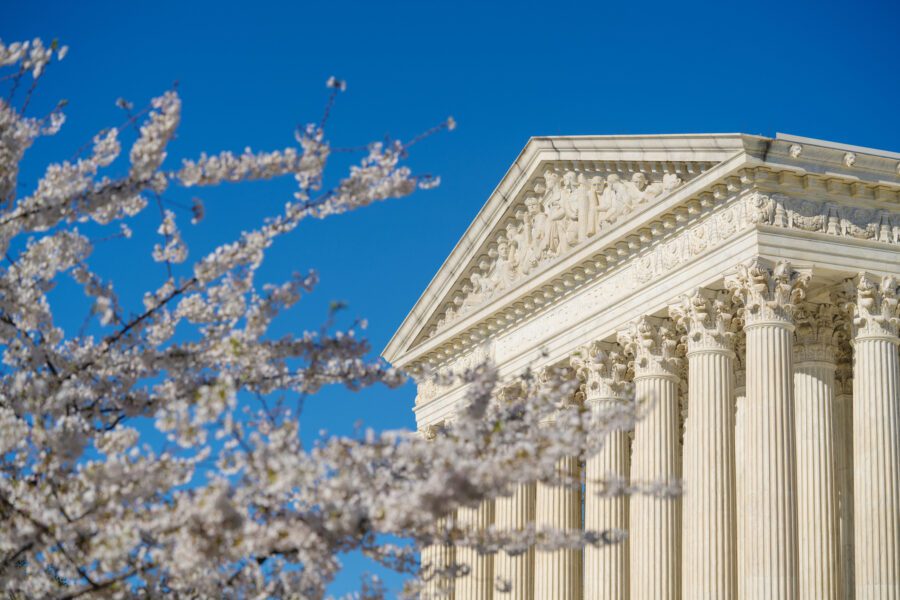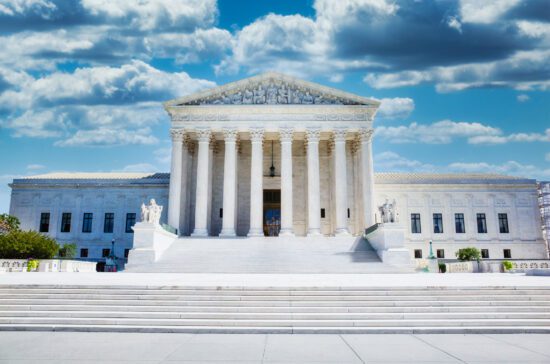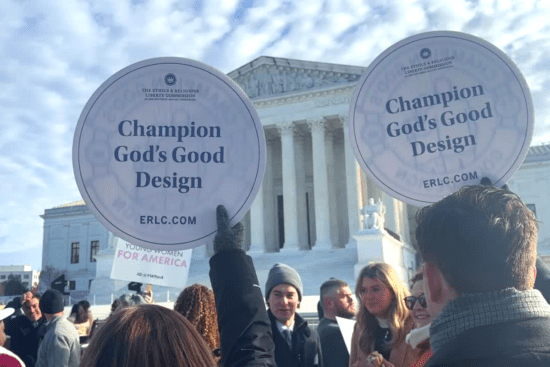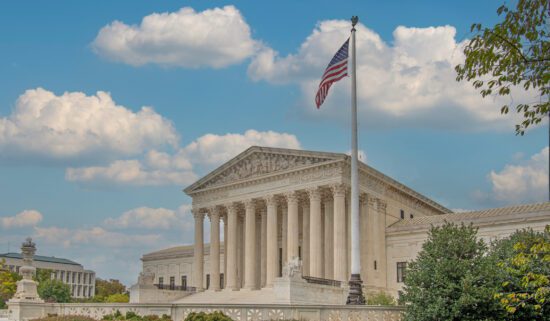The Supreme Court has agreed to hear Catholic Charities Bureau v. Wisconsin Labor & Review Industry Commission, a case regarding what qualifies as “sufficiently religious” for organizations to be eligible for certain tax-exemptions.
The ERLC joined religious liberty advocates, including the Minnesota-Wisconsin Baptist Convention, in filing a legal brief in September 2024 urging the Supreme Court to grant Catholic Charities’ petition to hear the case. When the Supreme Court agreed to argue this case, the ERLC filed an additional brief outlining why the Supreme Court must overturn the new, unconstitutional test created by the Wisconsin Supreme Court and uphold vital religious liberty protections for churches and faith-based entities.
What is this faith-based tax exemption case about?
Catholic Charities Bureau is a ministry arm of the Diocese of Superior of the Catholic Church charged with serving the poor and the disadvantaged. In 2016, Catholic Charities requested an exemption from the Wisconsin Unemployment Insurance Program tax so it could pay into a Bishop-sponsored unemployment program aligned with their religious beliefs. The Wisconsin Labor & Review Board denied this request, arguing Catholic Charities activities were not “typical” religious activity.
Wisconsin state law exempts organizations “operated, supervised, controlled, or principally supported by a church or convention or association of churches” from paying into the state unemployment programs. Catholic Charities, though separately incorporated, operates under the direct authority and supervision of the Diocese of Superior as a part of the church.
The Wisconsin Supreme Court ruling violates:
- First Amendment protections,
- long-standing judicial doctrines,
- and legal precedent.
If the test is allowed to stand, it will become the new standard religious organizations and church activities must meet to receive tax-exempt status. The ramifications of this ruling would grant the government unprecedented levels of authority to intervene in church matters, including the ability to determine what is and what is not considered a truly religious activity.
What do the ERLC’s amicus briefs say about this faith-based tax-exemption case?
- The ruling violates the church autonomy doctrine of the First Amendment.
The Supreme Court has repeatedly upheld that the First Amendment establishes a concept referred to as the “church autonomy doctrine,” which prohibits the government from determining “the validity, meaning, or importance of an organization’s beliefs and practices.”
The test created by the Wisconsin Supreme Court violates the church autonomy doctrine in two primary ways:
- It allows the government to characterize organizational activities as religious or nonreligious.
- It allows the government to determine if the religious organization’s motive is truly religious without considering the organization’s proclaimed motives.
The Wisconsin Supreme Court reasoned that since any charity can serve the poor, Catholic Charities proclaiming its motive is from the gospel is of no significance to the exemption. Yet, as the ERLC brief explains, “the existence of a comparable non-religious activity” does not invalidate a religious organization’s determination that its activities and motives are religious.
Particularly, for Southern Baptists, it is of great concern to the numerous ministry arms and congregations of the Convention that carry out the Great Commission work if the government can characterize their missional activities as secular. Allowing this ruling to stand complicates the vital ministry work of pastors, lay leaders, missionaries, and congregants serving vulnerable people for the sake of the gospel.
- The ruling violates existing precedent by allowing the federal government to discriminate between denominations.
The Supreme Court has a long-established precedent referred to as“Church polity freedom,” which allows religious entities to organize freely and prohibits the government from discriminating against certain denominations on the basis of organizational structure.
The new Wisconsin Supreme Court test would recognize a Catholic organization serving Catholics as religious, but not religious if they serve non-Catholics. The distinction in activity makes little constitutional sense and discriminates on religious organizational structure, violating the rights of churches to govern their own polity.
As expressed in the ERLC’s brief, “Southern Baptists believe that they ‘should work to provide for the orphaned, the needy, the abused, the aged, the helpless, and the sick’. Each autonomous Baptist Congregation determines for itself how best to do that.”
- The ruling further allows discrimination by violating the “Establishment Clause” and the “Free Exercise Clause.”
The Establishment Clause and the Free Exercise Clause work together to ensure the federal government cannot sanction an official state religion and that individual citizens are able to freely practice their religion.
The Wisconsin Supreme Court’s ruling contradicts both of these provisions by giving preferential treatment to religious structures that carry out missions work directly, rather than through sub-entities the denomination creates. As a result, the test instructs religious organizations in the state to exercise their faith in a government-approved way to be eligible for these exemptions. If Catholic Charities were a department of the Diocese rather than a separate entity, the newly fabricated test would find Catholic Charities religious enough for the exemption.
For Southern Baptists, it is important that the Supreme Court recognizes that the legal structure of any religious organization is a question of church governance, not judiciary power.
What happens next in this faith-based tax-exemption case?
The Supreme Court will hear oral arguments in this case on March 31, 2025. A decision is expected to be published in June 2025, before the end of the court’s term. The ERLC will be actively engaging this case over the coming months by listening to oral arguments and analyzing the court’s ultimate ruling.
Why does this faith-based tax-exemption case matter to Southern Baptists?
Southern Baptists are committed champions of religious liberty and ensuring believers can freely organize and express their faith without government interference. As outlined in the Baptist Faith and Message 2000, “a free church in a free state is the Christian ideal.” Furthermore, in the 2024 resolution “On Defending Religious Liberty,” Southern Baptists expressed they would like to “limit government infringement of religious expression.”
The Wisconsin Supreme Court’s ruling sets a precarious precedent for our nation’s religious liberty laws. It violates the First Amendment protections offered to religious organizations to conduct their work free of government infringement. The ERLC urges the Supreme Court to overturn this unconstitutional test and ensure the government is not delegated new power to determine what is or is not a true expression of religious belief.










